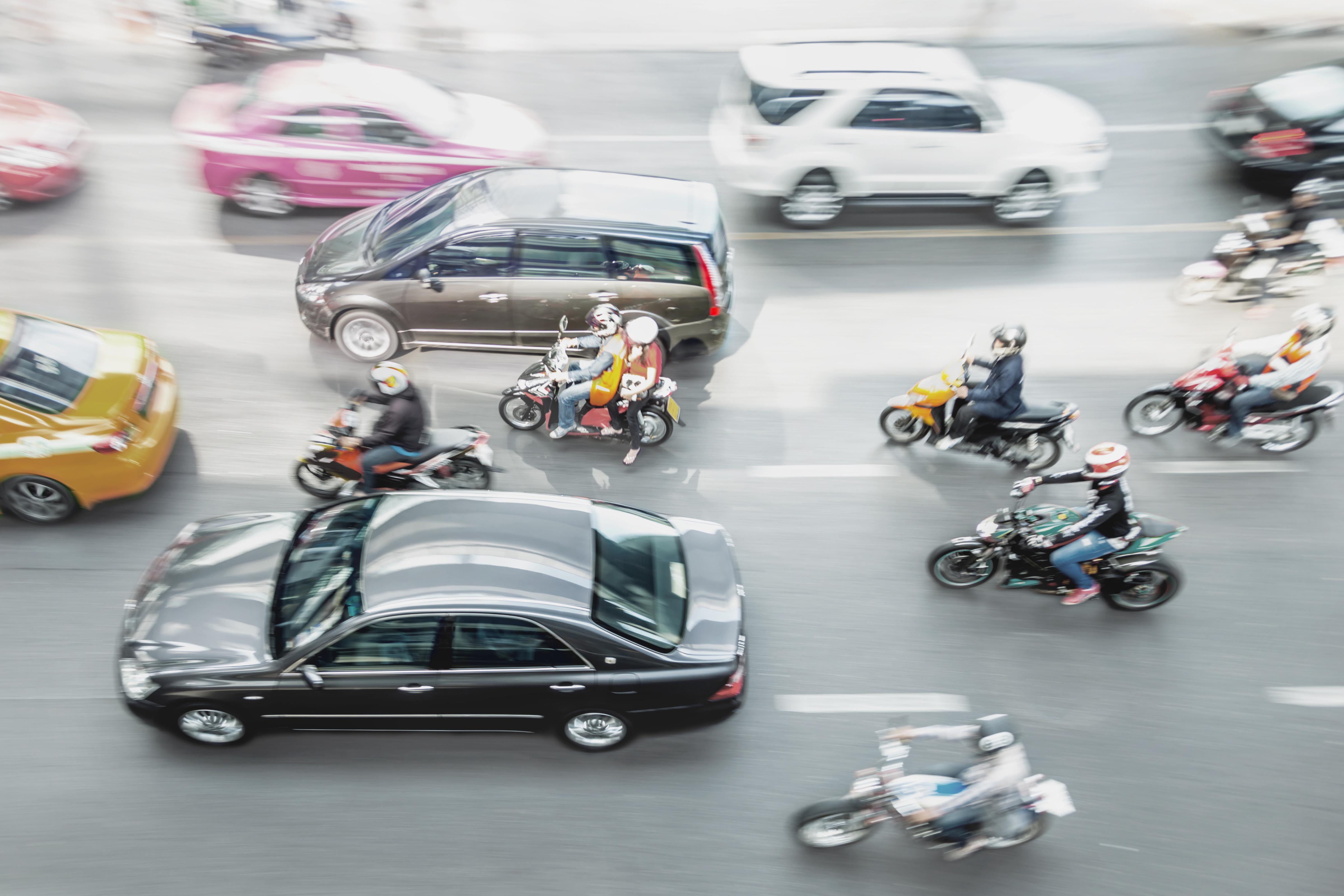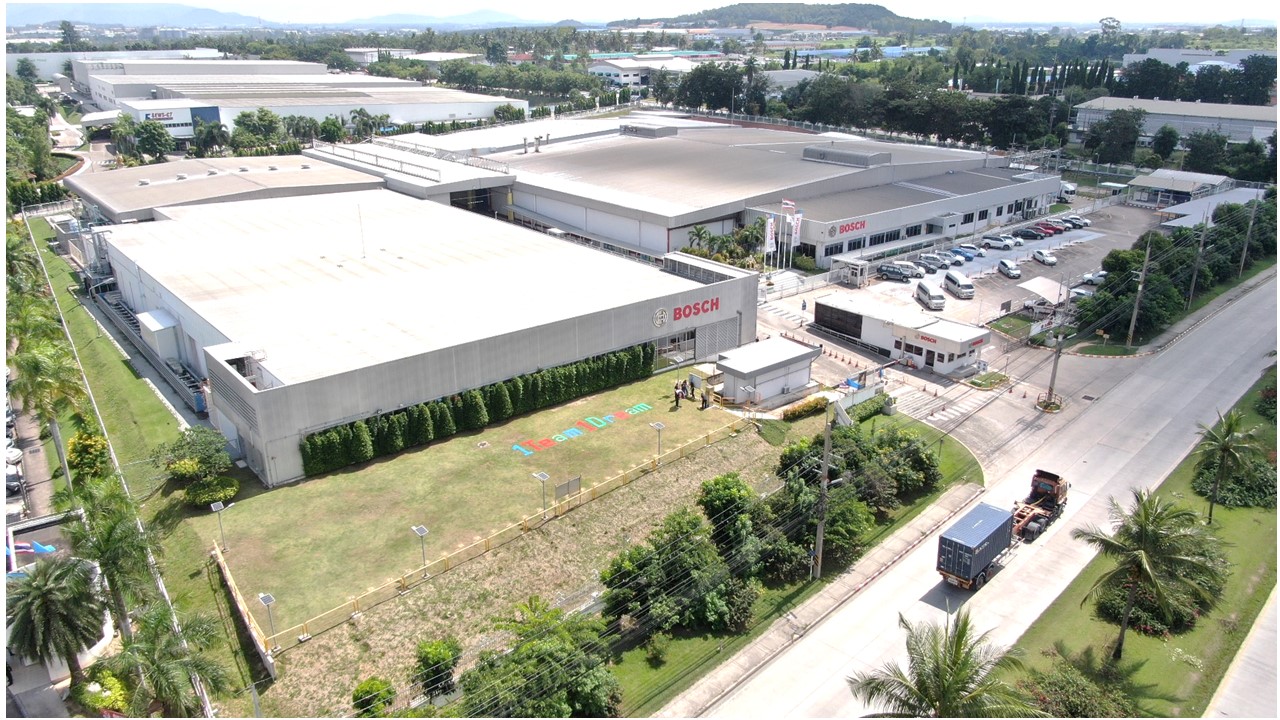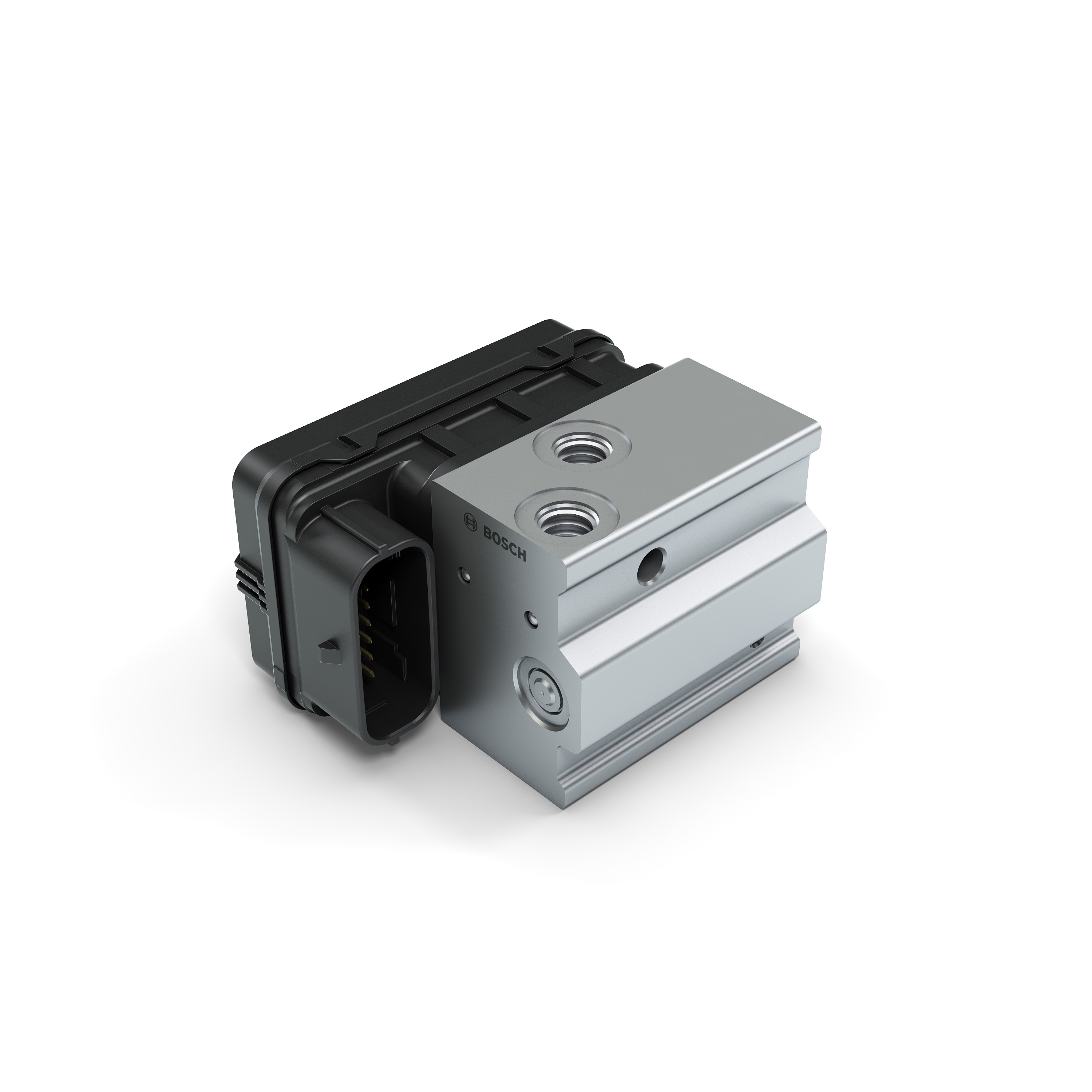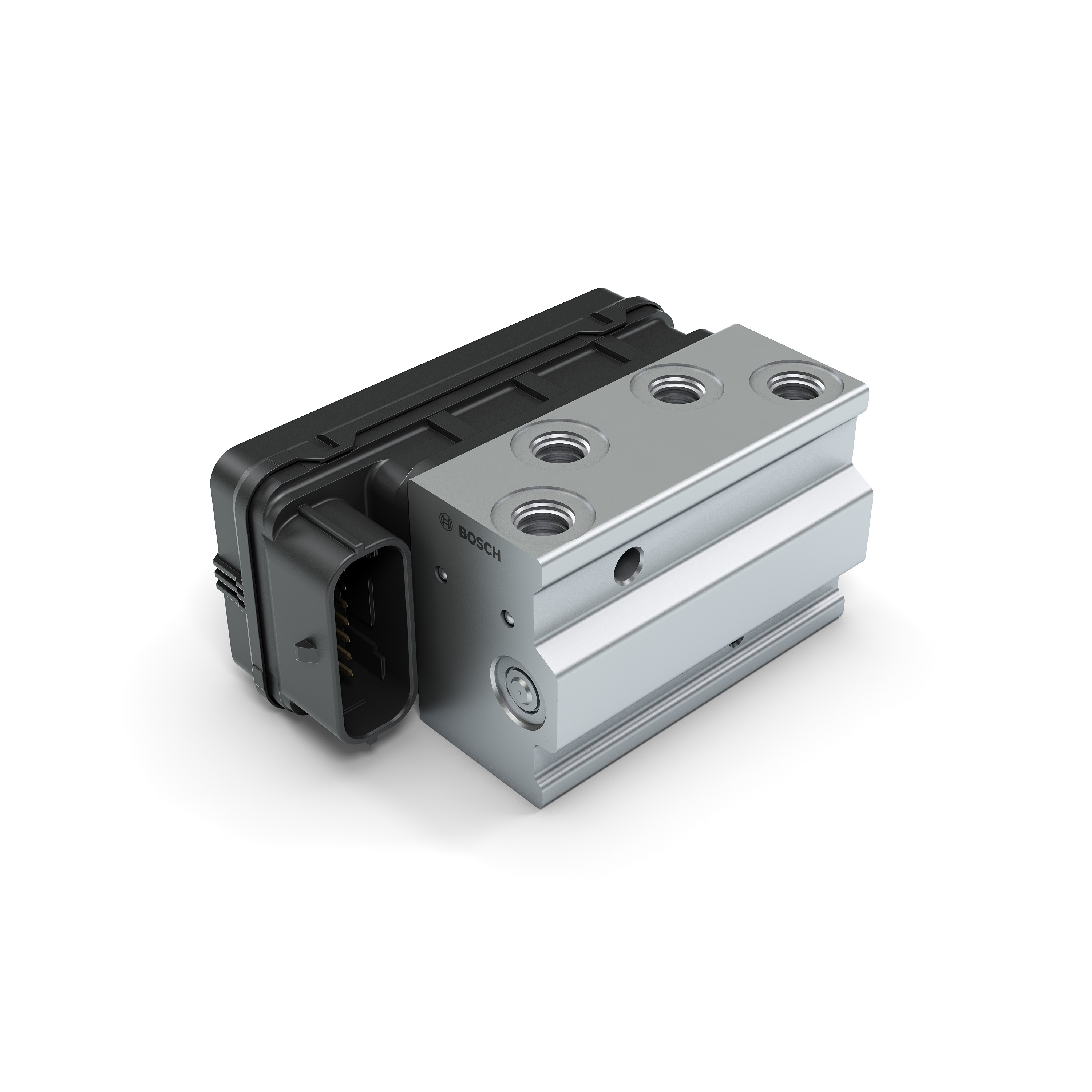Bangkok, Thailand – To achieve its vision of making motorcycle riding safer, more efficient, and fun, Bosch makes market-specific products and solutions available to global two-wheeler manufacturers. In order to meet the increasing demand for safety systems in the Asian market, Bosch plans to start production of motorcycle ABS at its Amata plant in Rayong, Thailand, in the second quarter of 2022. Following Japan and India, therefore, the Amata plant will be Bosch's third manufacturing site for motorcycle ABS in the world. This global manufacturing network allows Bosch to support global two-wheeler manufacturers' efforts to optimize their supply chains. "With ABS10 light and base, we provide dedicated safety systems for the small commuter scooters and motorcycles that represent a major mode of transportation in ASEAN. Our customers will benefit from local production at an established plant that already has experience of producing four-wheeler ABS systems," says Geoff Liersch, president of the Two-Wheeler & Powersports unit at Bosch.
Since 1996, the Amata plant has been growing in importance as a manufacturing site, producing a range of four-wheeler automotive components in the fields of chassis systems, electrical drives, and powertrain. Four-wheeler ABS products have been produced there since 2014.
Stricter safety standards for two-wheelers in Southeast Asia
On May 15, 2021, the Thai Department of Land Transport announced in the government gazette that ABS is to be mandatory for all new motorized two-wheeler vehicle models from 2024. In addition, it will be mandatory for all existing models with an engine displacement of more than 125 cc from 2026. According to the World Health Organization (WHO), the rate of road-traffic fatalities in Thailand is the highest in the ASEAN countries. While the figure for Southeast Asia as a whole is for 20.7 deaths per 100,000 inhabitants, the figure for Thailand is 36.2. In Southeast Asia, accidents involving motorized two- and three-wheelers account for 43 percent of all road traffic deaths.
Bosch can help make roads safer
Greater two-wheeler safety requires awareness and education of riders as well as the installation of vehicle safety systems. Motorcycle ABS supports riders while braking, even when braking hard or riding on slippery roads. It prevents wheels from locking up, and ensures vehicle stability and optimum deceleration. Bosch accident research studies show that if all two-wheelers were equipped with ABS, roughly 25 percent of accidents involving motorized two-wheelers could be prevented. "User-centric mobility is at the heart of Bosch's business, and motivates us to develop technology that will make mobility safer for all road users", adds Martin Hayes, regional president of Bosch Southeast Asia. "This development cements Bosch's commitment not only to road safety in general, but to the countries we operate in."
Contact person for press inquiries:
Kristina Reyes
DID: +6620128934
E-mail: Kristina.Reyes@th.bosch.com
Bosch to produce motorcycle ABS in Thailand from 2022
Local support for global two-wheeler manufacturers in ASEAN
2021/08/02


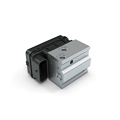
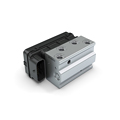
MoMobility Solutions is the largest Bosch Group business sector. It generated sales of 42.1 billion euros in 2020, and thus contributed 59 percent of total sales from operations. This makes the Bosch Group one of the leading automotive suppliers. The Mobility Solutions business sector pursues a vision of mobility that is safe, sustainable, and exciting, and combines the group's expertise in the domains of personalization, automation, electrification, and connectivity. For its customers, the outcome is integrated mobility solutions. The business sector's main areas of activity are injection technology and powertrain peripherals for internal-combustion engines, diverse solutions for powertrain electrification, vehicle safety systems, driver-assistance and automated functions, technology for user-friendly infotainment as well as vehicle-to-vehicle and vehicle-to-infrastructure communication, repair-shop concepts, and technology and services for the automotive aftermarket. Bosch is synonymous with important automotive innovations, such as electronic engine management, the ESP anti-skid system, and common-rail diesel technology.
The Bosch Group is a leading global supplier of technology and services. It employs roughly 395,000 associates worldwide (as of December 31, 2020). The company generated sales of 71.5 billion euros in 2020. Its operations are divided into four business sectors: Mobility Solutions, Industrial Technology, Consumer Goods, and Energy and Building Technology. As a leading IoT provider, Bosch offers innovative solutions for smart homes, Industry 4.0, and connected mobility. Bosch is pursuing a vision of mobility that is sustainable, safe, and exciting. It uses its expertise in sensor technology, software, and services, as well as its own IoT cloud, to offer its customers connected, cross-domain solutions from a single source. The Bosch Group's strategic objective is to facilitate connected living with products and solutions that either contain artificial intelligence (AI) or have been developed or manufactured with its help. Bosch improves quality of life worldwide with products and services that are innovative and spark enthusiasm. In short, Bosch creates technology that is "Invented for life." The Bosch Group comprises Robert Bosch GmbH and its roughly 440 subsidiary and regional companies in some 60 countries. Including sales and service partners, Bosch's global manufacturing, engineering, and sales network covers nearly every country in the world. With its more than 400 locations worldwide, the Bosch Group has been carbon neutral since the first quarter of 2020. The basis for the company's future growth is its innovative strength. At 129 locations across the globe, Bosch employs some 73,000 associates in research and development, of which nearly 34,000 are software engineers.
Additional information is available online at www.bosch.com, www.iot.bosch.com, www.bosch-press.com, and twitter.com/BoschPresse.
The Bosch Group is a leading global supplier of technology and services. It employs roughly 395,000 associates worldwide (as of December 31, 2020). The company generated sales of 71.5 billion euros in 2020. Its operations are divided into four business sectors: Mobility Solutions, Industrial Technology, Consumer Goods, and Energy and Building Technology. As a leading IoT provider, Bosch offers innovative solutions for smart homes, Industry 4.0, and connected mobility. Bosch is pursuing a vision of mobility that is sustainable, safe, and exciting. It uses its expertise in sensor technology, software, and services, as well as its own IoT cloud, to offer its customers connected, cross-domain solutions from a single source. The Bosch Group's strategic objective is to facilitate connected living with products and solutions that either contain artificial intelligence (AI) or have been developed or manufactured with its help. Bosch improves quality of life worldwide with products and services that are innovative and spark enthusiasm. In short, Bosch creates technology that is "Invented for life." The Bosch Group comprises Robert Bosch GmbH and its roughly 440 subsidiary and regional companies in some 60 countries. Including sales and service partners, Bosch's global manufacturing, engineering, and sales network covers nearly every country in the world. With its more than 400 locations worldwide, the Bosch Group has been carbon neutral since the first quarter of 2020. The basis for the company's future growth is its innovative strength. At 129 locations across the globe, Bosch employs some 73,000 associates in research and development, of which nearly 34,000 are software engineers.
Additional information is available online at www.bosch.com, www.iot.bosch.com, www.bosch-press.com, and twitter.com/BoschPresse.
